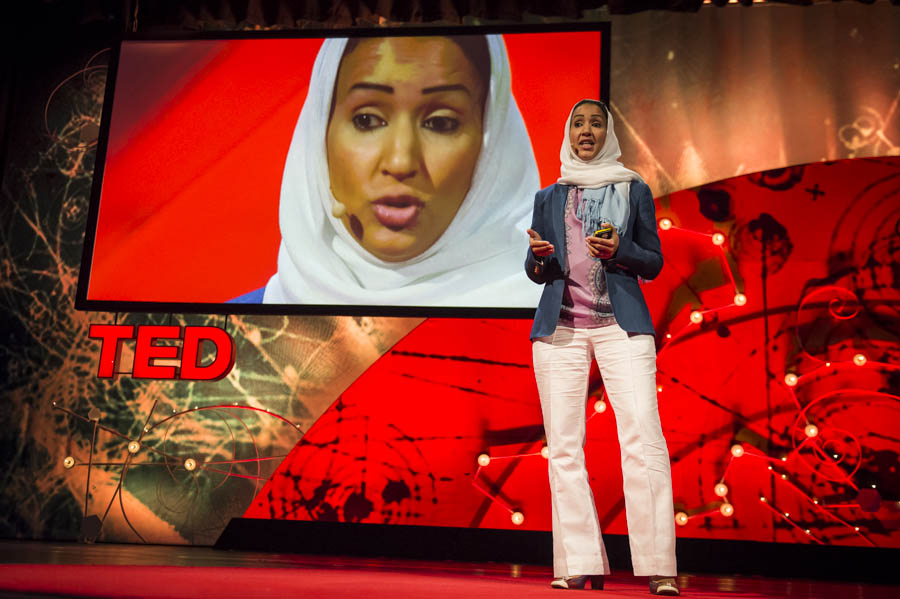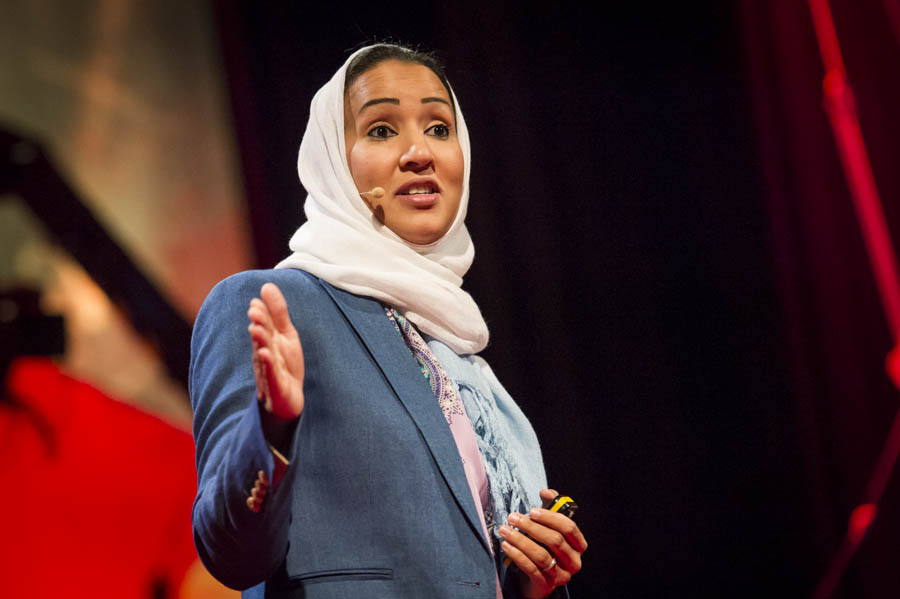Two years ago, as she put her 5-year-old son Aboody to bed, Manal Al-Sharif faced an unexpected question from him: “Mommy, are we bad people?” Earlier in the day, she had noticed bruises on his face. He didn’t want to tell her why. Now, in the evening, he confessed that boys at school had hit him because they’d seen his mother on Facebook. They said, “You and your mom should be put in jail.” This was a sudden moment of truth for women’s driving rights activist Al-Sharif: She’d created a situation that was bigger than herself or her family. For handing her his car keys, her brother had been detained twice, harassed and eventually forced to leave the country, and her father had to listen to his imam call women drivers prostitutes. It was not about driving, she realized, but a punishment for daring to challenge society’s rules.
It all began in 2011, when Al-Sharif complained to a friend about the Saudi ban on women driving, which had not been challenged for 20 years. The friend pointed out, to her stunned amazement, that there was no real legal ban — it was merely a custom enforced by religious fatwas. According to Saudi Arabia’s ultra-conservative system of beliefs, she says, women need guardians to protect them, and are treated as minors until they die. Her friend’s revelation was enough to prompt Al-Sharif to start a campaign to get as many women as possible to get behind the wheel and drive on June 17, 2011, spreading the word using social media.
In the weeks leading up to that day, Al-Sharif tested the waters by filming herself driving in Khobar and posting it on YouTube. The video got hundreds of thousands of views on the first day — and she received threats of death and rape. The authorities, however, were eerily silent. Trying a second time in the company of her brother, she drove past a police car, and the response was swift: Al-Sharif was arrested and sent to jail for nine days.
Undeterred, on June 17, 2011, some one hundred courageous women came out and broke the ban, driving in streets packed with police cars. Incredibly, no one was arrested. “We broke the taboo,” says Al-Sharif.
Al-Sharif describes what followed as a fragmented time of having to live with two opposing images of herself: the villain within her own country, and the hero outside of it. When she traveled to Oslo to speak at the Oslo Freedom Forum, she was embraced warmly. On her return home, she was met with a nationwide Twitter attack with the hashtag #OsloTraitor. In a poll that asked, “Do you consider Manal a traitor after her speech in Oslo?” 90% answered “Yes.” Yet, Al-Sharif says, fighting tears, “I’m a proud Saudi woman and I do love my country. It’s because I love my country that I’m doing this. I believe a society will not be free if women of that society are not free.” Her statement gets a long standing ovation.
Al-Sharif has continued to face controversy by taking action: getting back on social media as soon as she was released from jail, filing a lawsuit against the Saudi General Directorate of Traffic for not issuing her a driver’s license, and filing a petition to the Shura Council asking to lift the driving ban. Meanwhile, Saudi Arabia today is taking small steps towards enhancing women’s rights, she says. Last year, 30 women were assigned to the Shura Council, the monarchy’s advisory board; women now make up 20 percent of the membership. The Council has accepted Al-Sharif’s petition — which had 3,500 signatures — and the traffic police have announced they will only issue violation tickets to women drivers. Meanwhile, the Grand Mufti recently issued a fatwa softening its hard line, stating it’s simply “not recommended” for women to drive.
But, Al-Sharif says, it’s not so much about rule of law as it is about women’s attitudes about themselves: The danger is internalizing an oppressive society’s insistence that women are inferior. She’s not sure how she became an activist, but she says she will always be proud to be one of the women who was part of the ban and fought to overturn it. She concludes that change can only happen “if women stop asking when, and start taking action now to drive our own lives.”
Manal Al-Sharif’s talk is now available for viewing. Watch it here »


Comments (5)
Pingback: Manal al-Sharif: A Saudi woman who dared to drive | Rantings of a New Yorker
Pingback: TEDGlobal 2013 – Day 1 | TEDxNYU